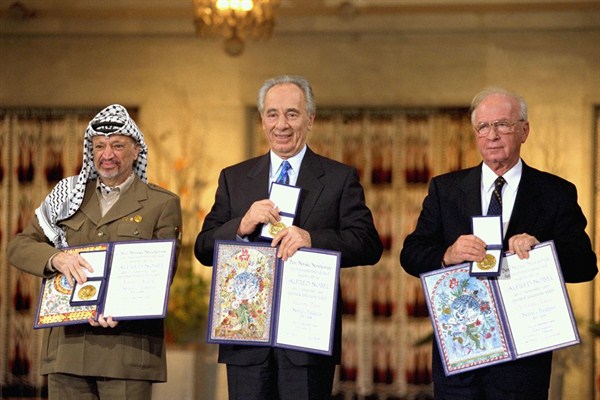Americans often take for granted that events that mark U.S. history are as indelibly imprinted in people’s memories around the world as they are in the U.S. For those of a certain generation, the assassination of John F. Kennedy is one such event. For younger Americans, it’s the attacks of Sept. 11.
But at times, the reverse is also true, when historical events that occur elsewhere in the world become indelibly imprinted on American minds. That is the case for me and Nov. 4, 1995: the day Israeli Prime Minister Yitzhak Rabin was assassinated in Tel Aviv. I can still remember the feeling of numbness and disbelief as I watched the omnipresent television coverage of the shooting. The shock I felt would only be compounded by the fact that the killer was an Israeli. It just seemed almost impossible to process.
For those of us who held such hope for the Oslo peace process, the surreal spectacle of Rabin’s funeral—attended by dozens of world leaders, including many of the region’s Arab leaders—offered the only respite to the all-consuming tragedy. In that gathering, one could discern a faint hope that Rabin had not died in vain; that Israelis and Arabs who wanted peace would prevail in the end.

